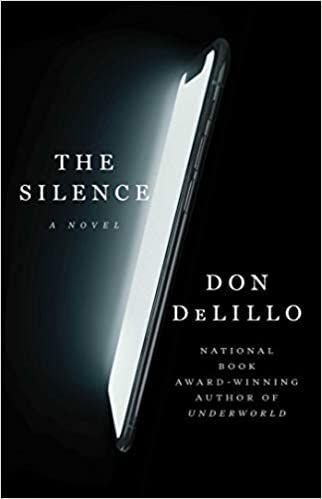
The Silence
From one of the most dazzling and essential voices in American fiction, a timely and compelling novel set in the near future about five people gathered together in a Manhattan apartment, in the midst of a catastrophic event. Don DeLillo completed this novel just weeks before the advent of Covid-19. The Silence is the story of a different catastrophic event. Its resonances offer a mysterious solace. It is Super Bowl Sunday in the year 2022. Five people, dinner, an apartment on the east side of Manhattan. The retired physics professor and her husband and her former student waiting for the couple who will join them from what becomes a dramatic flight from Paris. The conversation ranges from a survey telescope in North-central Chile to a favorite brand of bourbon to Einstein’s 1912 Manuscript on the Special Theory of Relativity. Then something happens and the digital connections that have transformed our lives are severed. What follows is a dazzling and profoundly moving conversation about what makes us human. Never has the art of fiction been such an immediate guide to our navigation of a bewildering world. Never have DeLillo’s prescience, imagination, and language been more illuminating and essential. “Mysterious...Unexpectedly touching...[DeLillo offers] consolation simply by enacting so well the mystery and awe of the real world.” —Joshua Ferris, The New York Times Book Review “DeLillo [has] almost Dayglo powers as a writer.” —Michiko Kakutani, The New York Times “Brilliant and astonishing…a masterpiece…manages to renew DeLillo’s longstanding obsessions while also striking deeply and swiftly at the reader’s emotions…The effect is transcendent.” —Charles Finch, Chicago Tribune “Daring... provocative... exquisite...captures the swelling fears of our age.” —Ron Charles, The Washington Post
Reviews
Morgan Thomas@moalthom91
Cristian Garcia@cristian
andy f@spam
Nelson Zagalo@nzagalo
courtney garrison@simplycourtney
Donald@riversofeurope
Christopher McCaffery@cmccafe
sydney @godsgrave
Jeremy Anderberg@jeremyanderberg
Gary Homewood@GaryHomewood
Kutalp (Kutalp)@nihilreich
Colton Ray@coltonmray
Lindsy Rice@lindsyrice
David Pascuzzo@davidpascuzzo
Ana Hein@anahein99
giulia@giulscio
Kathy Andrew@kathy305
Daniel Feldt@dafeld
Kevin Spachuk@spacious1
Angelo Zinna@angelozinna
Chris Poore@thepoorehouse
Isabella Brouwer@isabellabr
Tanja Hoffmann@sabsile
Leslie Stinson@lstinson